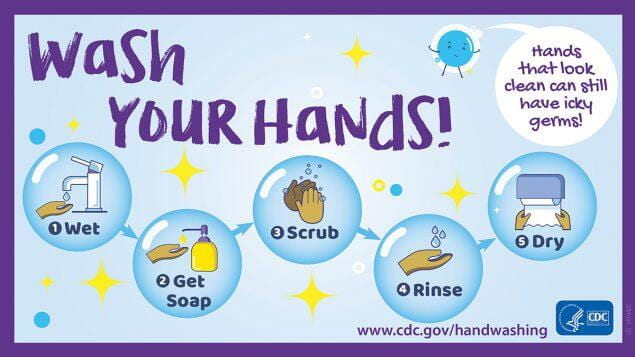
An Update on Gastroenteritis
HUHS is aware of a higher than usual number of gastroenteritis cases in the College residential community currently, and some of the cases have been identified as norovirus.
The information below is specific to norovirus, but preventive approaches that are effective for norovirus can be helpful for preventing spread of many other causes of infectious gastroenteritis.
About Norovirus
- Norovirus is a highly contagious virus which causes gastroenteritis (inflammation of the stomach and intestines) that leads to diarrhea, vomiting, nausea, and stomach pain
- Transmission is via the fecal-oral route (from inadequate hand washing after bathroom use) and direct person-to-person contact, as well as through contaminated food or water
- A very small amount of virus can cause illness — aerosolized particles of virus (small particles dispersed into the air) from vomitus can infect others, so it is important to take care when assisting those who are ill or when helping to clean up vomitus
- Shared common surfaces can easily become contaminated leading to the infection of others — those living in communal settings (dorms) or sharing confined environments (cruise ships) have an increased risk
- The incubation period is usually 12 to 48 hours
- Confirmatory diagnosis requires stool cultures obtained within 48-72 hours of acute illness
Treatment
- There is no specific medicine to treat norovirus illness. To prevent dehydration, you should drink plenty of liquids to replace the fluid lost from vomiting and diarrhea.
- Antibiotic drugs will not help treat norovirus infections because they fight bacteria, not viruses.
Prevention
Prevention is centered on good hygiene practices, which include:
- Washing hands frequently with soap and water, especially after touching shared surfaces and before touching your face or eating. Alcohol-based products can be used in addition, but not as a substitute to soap and water, because this virus is not as susceptible to alcohol-based products.
- Not sharing eating utensils, glasses, water bottles, etc. with others
- Taking precautions when assisting someone who is ill or has vomited, and if at all possible, avoiding any contact with vomitus
Visit the Center for Disease Control and Prevention’s website for more information on when and how to wash your hands properly.

If You Have Symptoms
If you have symptoms of vomiting or diarrhea, maintain good hydration, avoid contact with other people, and seek medical attention if your symptoms do not resolve.
Visit the Center for Disease Control and Prevention’s website for more information on norovirus.